Be it during informal conversation within a friend group or in some of the hundreds of lists ranking the best or most popular titles in the Final Fantasy franchise that can be found all over the internet, based on different criteria, the chances of Final Fantasy X being mentioned are always very high.
Dear to many fans' hearts and highly rated by the critics, it’s one of the games in the mainline which brings us a different visual than its predecessors, charismatic characters, iconic moments and, weaved within all of that, one of the best narratives around loss ever told in gaming.
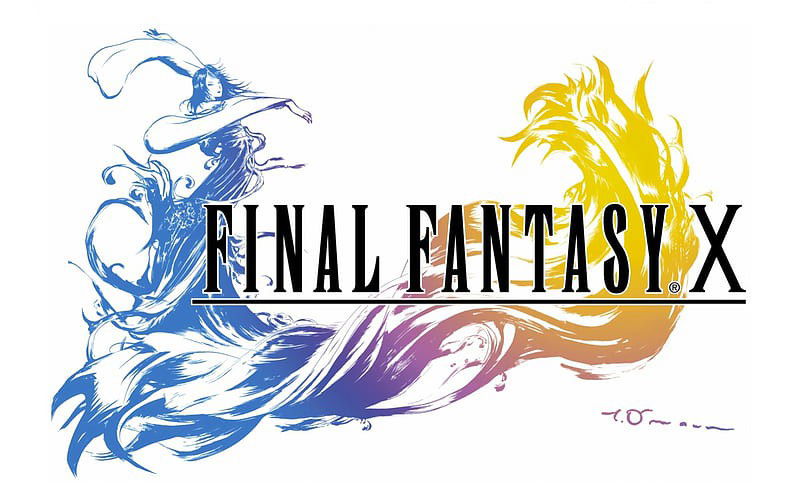
It’s necessary to establish first of all that it’s impossible to discuss the central themes in FFX without spoiling the entire story, so from this point forward, we’ll discuss every secret revealed throughout the gameplay, including the ending!
A Final Fantasy X Retrospective
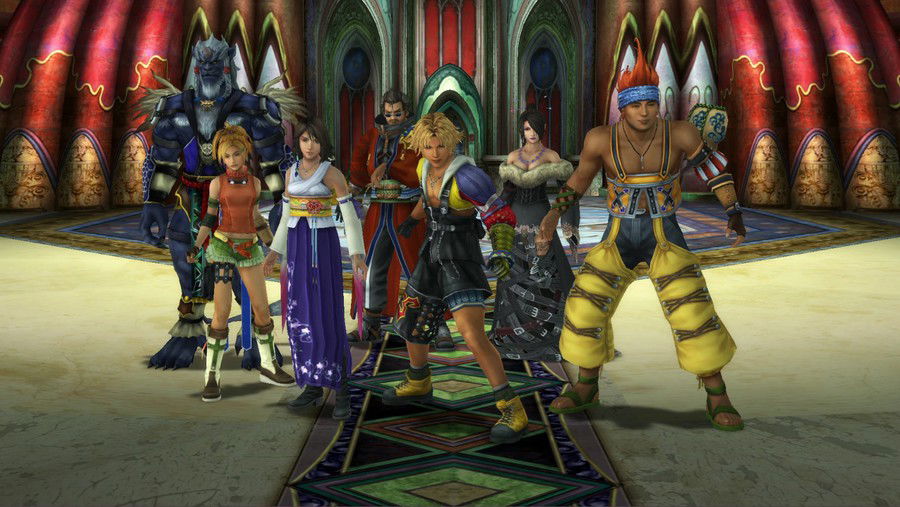
In Final Fantasy X, we follow Tidus, Yuna and the rest of the main party as they embark on a journey, called Pilgrimage, throughout the continent of Spira, a world dominated by the Maesters who preach the Teachings of Yevon, the main religion around the entire continent, which disowns the use of the technology of Machina and keeps the population under control using their fear of Sin, a “giant creature” who is, in truth, the vehicle utilized by the real villain of the game: Yu Yevon.
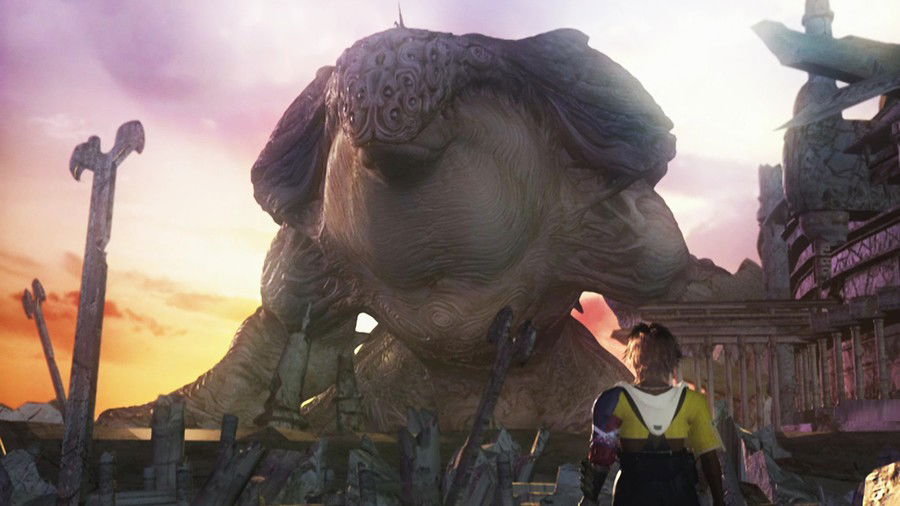
This religion preaches that Sin is the physical manifestation of a sort of divine punishment for the sins of everyone that lives in Spira, and that the only way to defeat it is with a temporary solution: People who become Summoners, individuals who can connect with the spiritual plane, the Farplane, are tasked with two important missions, and travel around the continent alongside their companions and protectors, called Guardians, to fulfill them.
The first one is performing the Sending, the act of literally sending people’s souls to the Farplane after their deaths so that they don’t stay in the mortal plane and become either Fiends, the monsters you fight in-game, or Unsent, souls that for some reason have strong enough willpower to retain their physical form and remain in the plane of the living, pretending as if they still belong to it.

The second task is going on a Pilgrimage, journeying through each of the main temples in Spira and, in each of them, obtaining an Aeon, a physical manifestation of the Summoner’s ability to connect with the Fayth, name given to the phenomenon of when a person dies and their soul stays literally stranded in the mortal plane, bound to a rock or a statue, their strength and power available to be channeled by Summoners and used in battle.
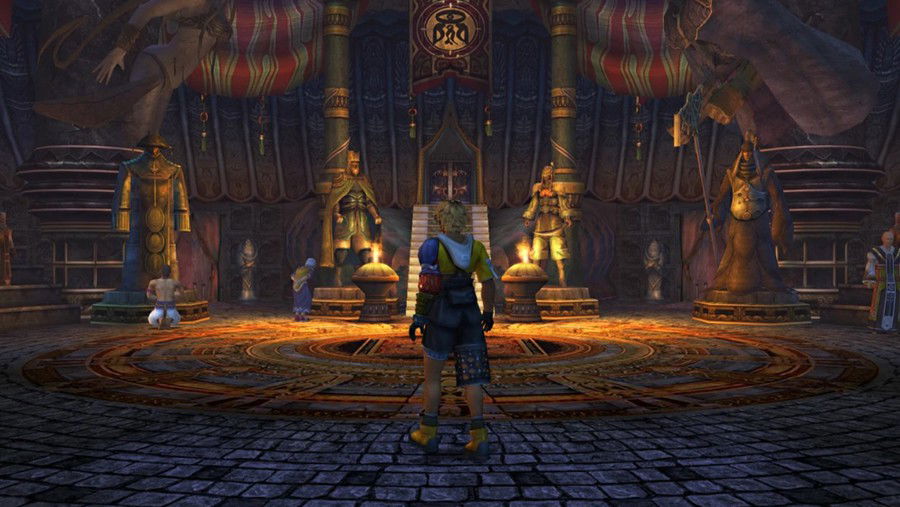
Once the Summoner gets all the Aeons, including the somewhat mysterious Final Aeon, they can perform the Final Summoning, a ritual which eliminates Sin for a period of time but costs the life of the Summoner, who must voluntarily sacrifice themselves to bring the citizens of Spira this time free of Sin, called The Calm.
Introduction - The Themes Within Final Fantasy X
Final Fantasy X was a big highlight in the franchise’s history due to plenty of reasons, one of them being that it’s the first FF game where the main romantic couple kiss, in a strikingly beautiful and quite famous scene in Lake Macalania, to the soundtrack of Suteki Da Ne. Another reason is the world of Spira in itself, which was highly praised for its attention to detail and world building.
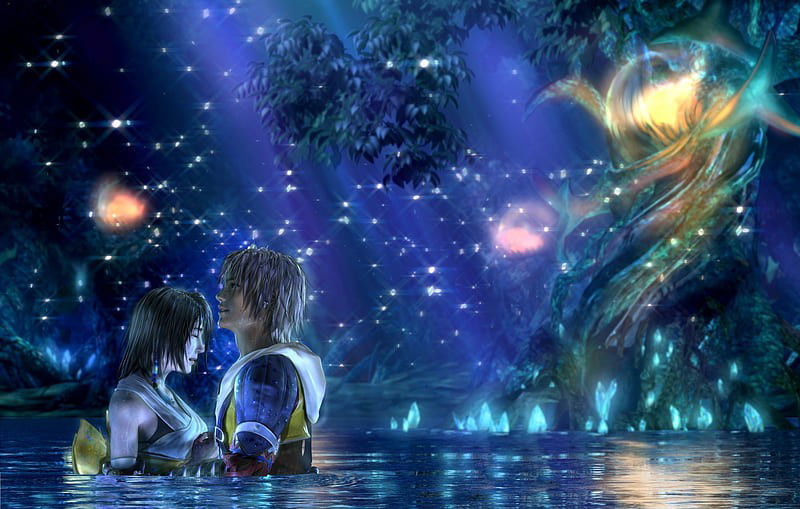
Each previous Final Fantasy had their ambiance deeply rooted in fantasy, of course, but always bringing themes and elements from high fantasy, medieval fantasy or a futuristic and dystopian variant of it. The intention of the concept artists team working on X was to make a game which fit within this fantasy theme but had another feel and another ambiance to it, a lot more based on and inspired by asian themes, and it’s possible to clearly identify those influences in aspects such as the Polynesian and Thailandese style of the statues and buildings around Spira and in the bright colors and unique styles of the characters’ clothing.
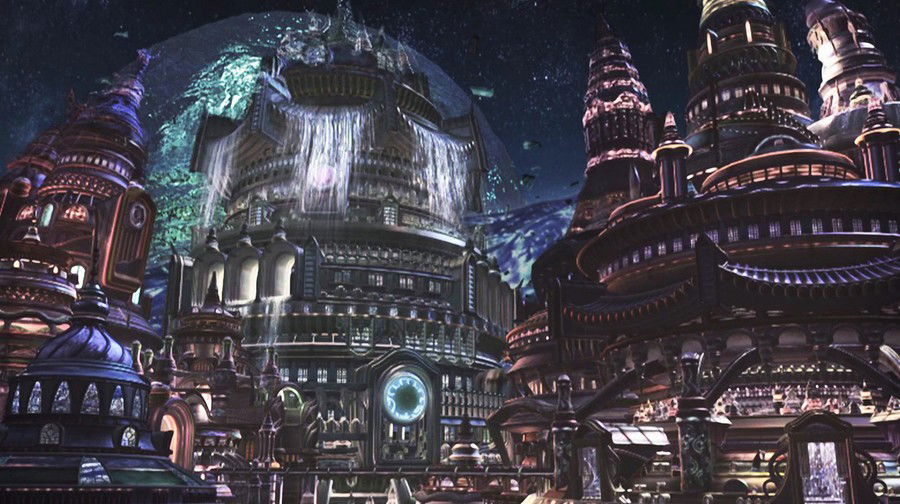
However, beyond all of that, the story and the themes brought by FFX are more than enough reason for the success it has reached. The initial concept of the game was to put the player controlling a young man who lives in a world affected by a mysterious pandemic which makes it so that people die when they reach their 17th birthday, focusing on his journey to find a cure. Meaning that, even though a lot has changed from the initial idea to the release of the Final Fantasy X we know, one theme stands out as being central and crucial to the narrative: Death, the pain of loss and how we deal with it.
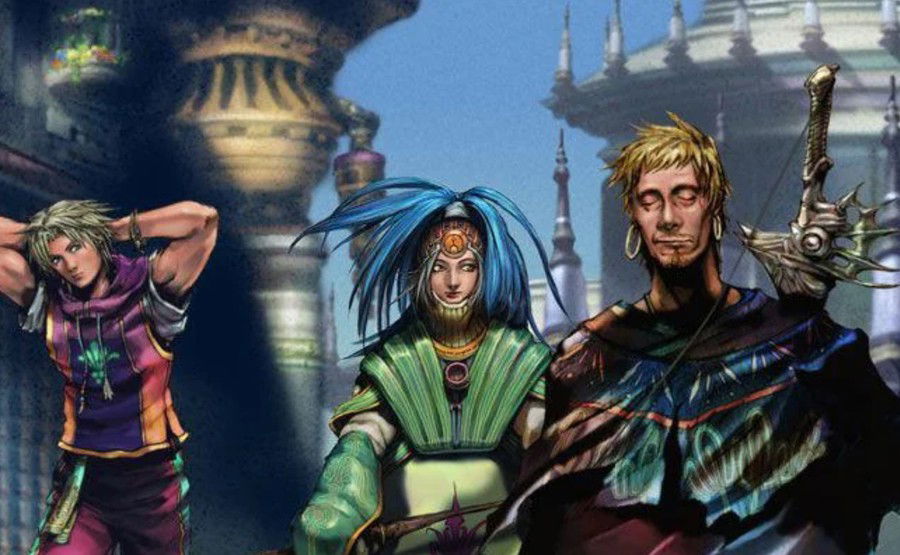
FFX is, above everything else, a Tragedy. A story about grief, presented under the optics of several characters, among them the main party, villains and even secondary characters, each following their own personal storyline which involves dealing with some big loss. It’s a story about a society trapped in an endless cycle of death, covered up by lies and by a religion built on and maintained by those same lies, where sacrifice and all the pain which comes from it are glorified.
Grief as a Narrative Instrument
The narrative brings, through the stories and characters' arcs, several views of the same theme, and even diametrically opposing positions over the same fact, so the easiest way to recap its central themes is to talk a little about the particular story for each of them, as they deal with their own way of expressing and feeling grief.
Tidus
Tidus is the game’s protagonist, and this is reinforced to us many times, including by Tidus himself with his repeated declarations of “This is my story”, and his relationship to grief is the most complex one, exactly due to that.
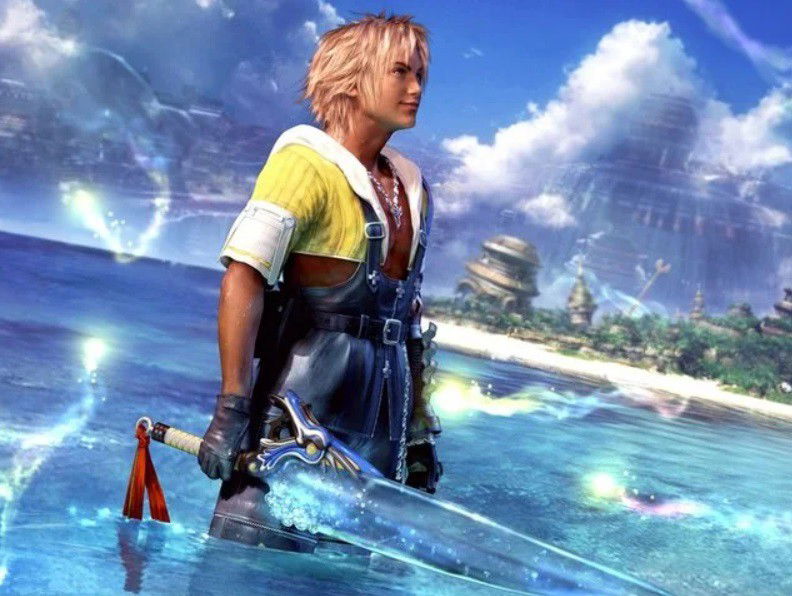
His journey alongside these painful feelings starts while very young, when he lost his parents, with whom he already had a troubled relationship due to his mother’s negligence towards him, stemming from heavily supporting his father instead, Jecht, a very famous Blitzball player who, even though he loves his son, wasn’t exactly the best in showing it. When Jecht goes missing, everything takes a turn for the worst and Tidus soon loses his mother also, who dies basically of a broken heart, neglecting even more her young son as she made her life entirely about waiting for Jecht’s return, which would never actually happen.
Our gameplay starts at the point in which Tidus suffers another great loss: His city, his own promising career as a Blitzball player, everything he knows is taken from him when Zanarkand gets attacked by Sin, and he is thrown headfirst into an unknown world. As the game goes on, he still has to deal with more grief upon finding out that the end goal of their journey involves Yuna sacrificing herself to defeat Sin for a while and, later on, when he discovers that by defeating Sin once and for all, it’ll be at the expense of his own existence.
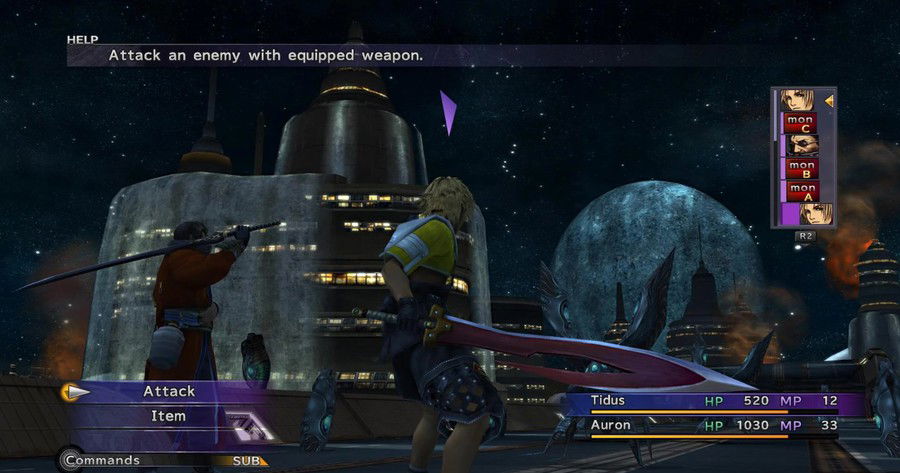
The huge plot twist in the game is finding out that Tidus does not really exist, being nothing but a dream created by Yu Yevon, who has been channeling the power from and manipulating the dreams of a giant Fayth, created by himself a millennium before, when Zanarkand still existed and was losing a war against Bevelle, a more technologically advanced city that used Machina to battle. He sacrificed the entire Zanarkand population to create this Fayth, and then used their powers to summon a version of Zanarkand and all of its now deceased people, entirely created by dreams, refusing to accept that he’d lost his city and preferring to keep it “alive” in this twisted way.
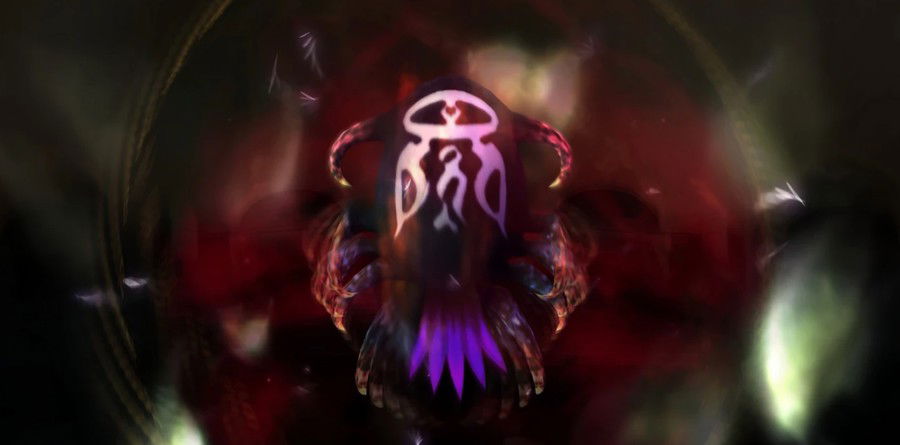
The entirety of the religion of Yevon was funded with the real objective of helping Yu Yevon to maintain this summon, every Maester, nearly all of them actually being Unsents, has full knowledge that Sin has never had anything to do with the use of Machina or with any sins of the people, and that it will never disappear forever, everything has always been simply a farce created to keep sending Summoners and their Guardians to their deaths so that the villain can keep harvesting and exploiting their powers.
A Guardian must volunteer their own life, thus becoming a Fayth which, by being summoned as the Final Aeon, becomes the new Sin just as the Summoner dies so that the “previous” Sin can be defeated, maintaining the cycle.
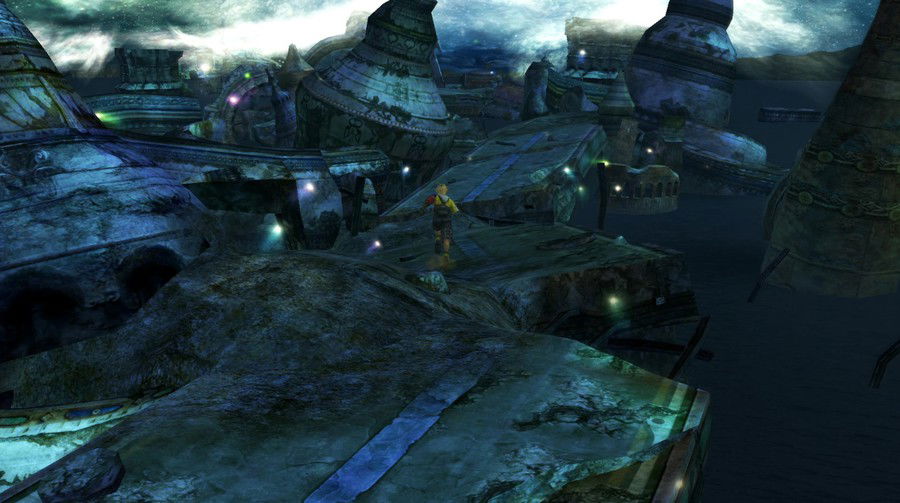
Precisely because Tidus is the protagonist - and since it’s through his optics that we experience the events in FFX - it’s possible to observe suggestions of his own personal journey through the five stages of grief.
When he ends up in Spira, meets the rest of the party in Besaid and learns from them that Zanarkand was actually a city destroyed a millennium before, Tidus gets into full denial of his reality because, to him, Zanarkand is still a very much existing and inhabited city. The Anger shows in the picture when he finds out that Yuna intends to sacrifice herself at the end of the Pilgrimage and how the religion which predominates in Spira preaches and glorifies death and sacrifices that he considers wasteful and unnecessary for being only a temporary solution.
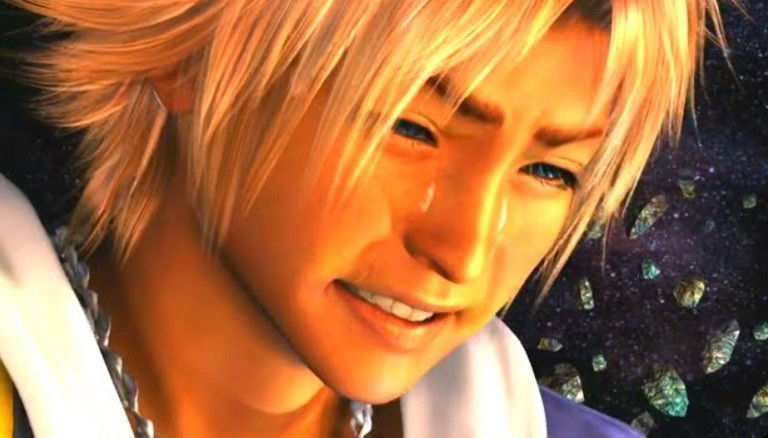
The Bargaining is characterized by the point in which he refuses to accept that Yuna sacrifices herself and tries to find any alternatives. Soon after follows the Depression, in the moment Tidus talks to the Fayth and finds out that he is nothing but a dream that took shape and, should his journey succeed, he’ll disappear.
Finally, Acceptance comes alongside his last few words directed to the Fayth, “I’m grateful”, when he accepts that his fate is to disappear but looks upon it with gratitude for, before it happens, having had the opportunity to live through what he has lived, to meet those he met, to fall in love and to help rid Spira of a great evil, giving his companions the opportunity to live a better life through his sacrifice.
Yuna
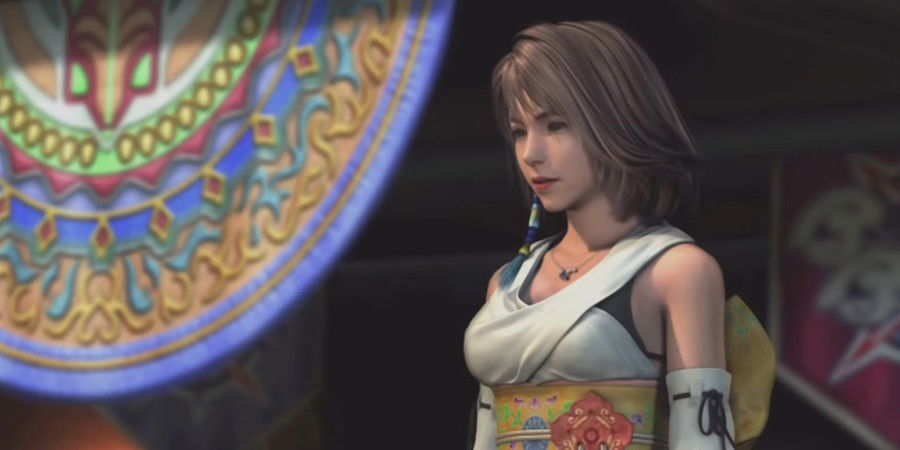
Yuna’s grief comes partly from the loss of Lord Braska, her father and the last summoner to give his life in the name of defeating Sin and bringing The Calm to Spira, and partly from the inevitability, in her eyes, of sharing the same fate.
Yuna deals with her grief by shifting the entirety of its weight to the responsibility of following in her father’s footsteps and sacrificing herself in the name of her beliefs and so, once the cracks in the foundation of her religion start showing far too much, she still has to deal with the fact that everything she believed her entire life is based on lies, feeling betrayed by the very religion and society for whom she was willing to sacrifice her own life without hesitation.
Wakka
Similar to Yuna when it comes to religion, one of the main sources of Wakka’s grief, it’s also connected to it. Right at the beginning of the game we find out that Wakka has lost his brother, Chappu, in a Sin attack, and Tidus’s unexpected arrival in Besaid brings his loss back because he's very similar to Chappu, so much so that the Brotherhood sword is gifted to Tidus by Wakka as a way to “honor” his dead brother.
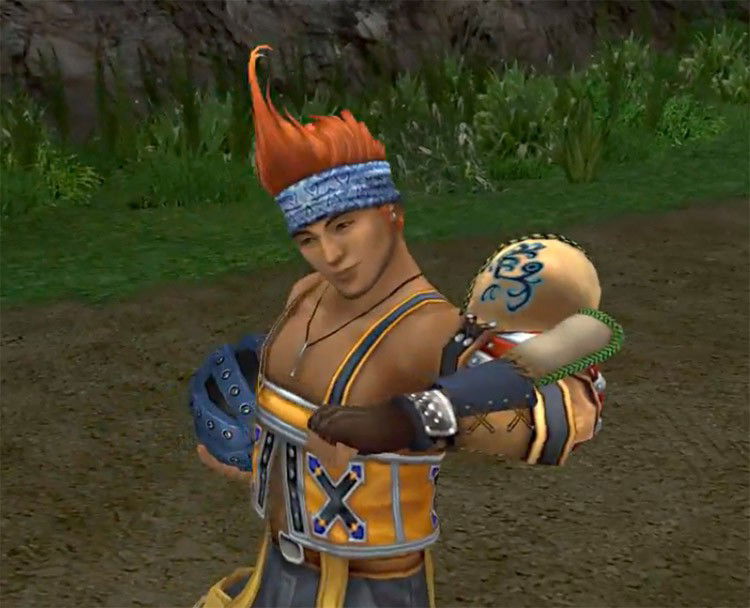
Wakka is the member of the main party who is the most fervently religious, being the one who always brings up the Teachings of Yevon and the one who gets in conflict all the time with Rikku because she's an Al-Bhed, enemies of the followers of Yevon. The religion he believes in is his entire moral ground and his only source of comfort regarding his brother’s death, and precisely due to that, once the characters start to figure out the lies covered by the Maesters, he is the one who has the hardest time dealing with the loss of it.
Lulu
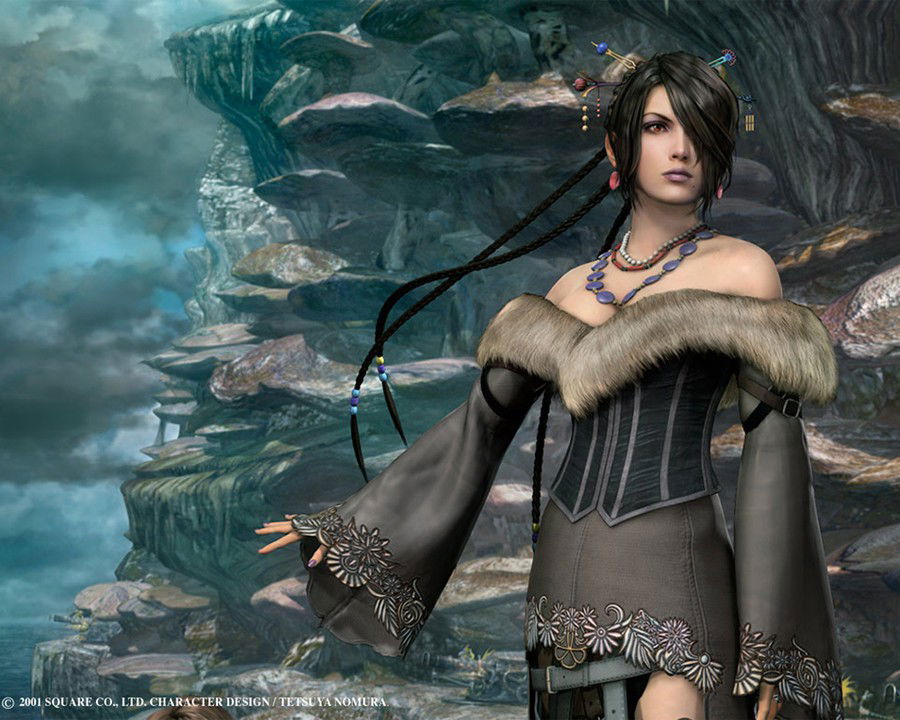
Lulu’s grief is related to Wakka’s in parts because she was Chappu’s fiancé and his death has also left deep scars in the mage, brought back to the surface by Tidus’s arrival and his resemblance to Chappu.
However, Lulu also carries her own particular traumas due to having been a guardian twice before already and, in her eyes, having failed both times, especially in her first journey, guarding Lady Ginnem, who died before she was able to complete her Pilgrimage, and Lulu fully blames herself for her death and for not having been able to save her. Lulu is initially against Yuna going on her journey, precisely because she knows what it entails in the end and that she will lose her when the Final Summoning is performed, and doesn’t want to deal with that loss once more.
Auron
Maybe the most tragic character in the party, Auron was one of the Guardians of Yuna’s father, Lord Braska, alongside Jecht, Tidus’s father, who, upon vanishing from Zanarkand years before his son, was transported to Bevelle and out of the dream Zanarkand by accidentally touching Sin, becoming “real”.
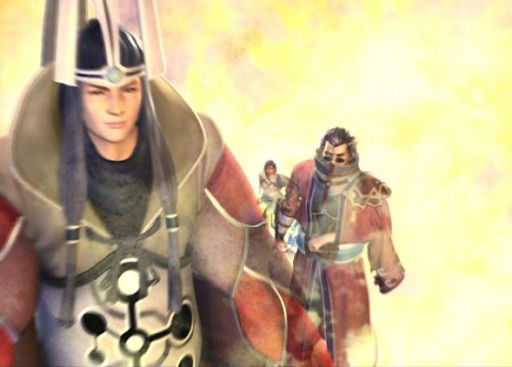
At the end of their journey, Jecht sacrificed himself to become the Final Aeon, thus actually turning into the current Sin, and Braska gave his own life to defeat the prior Sin, blindly placing his trust in the hopes that his sacrifice might be the one to finally destroy Sin for good. Auron was then left completely alone to, some time later, find out the entire truth involving Sin and Yevon and also that his friends had given their lives in the name of a lie. He goes back, then, to Yunalesca and tries to fight her, losing his own life in the battle.
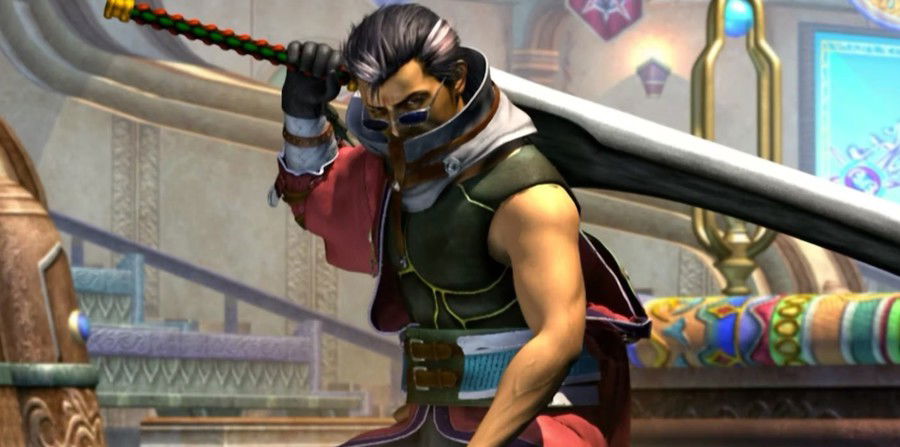
However, his journey alongside grief doesn’t even end with his own death because he remains in Spira as an Unsent, refusing to go to the Farplane where all dead souls should go, and keeps up appearances as if he were still alive to be able to help out his best friends' children to defeat, once and for all, Yu Yevon and the cycle of death in which Spira is trapped.
Auron and Jecht devised a plan, and it consisted in bringing Tidus to the world outside the Fayth’s dream so that he can defeat Yu Yevon, Sin, and free the Fayth who has been forced to stay dormant and dreaming the vision of Zanarkand, and Auron is determined to see it through despite knowing that in the end, even if they’re victorious, he’ll lose his own existence in the mortal plane once and for all and that Tidus will meet a similar fate.
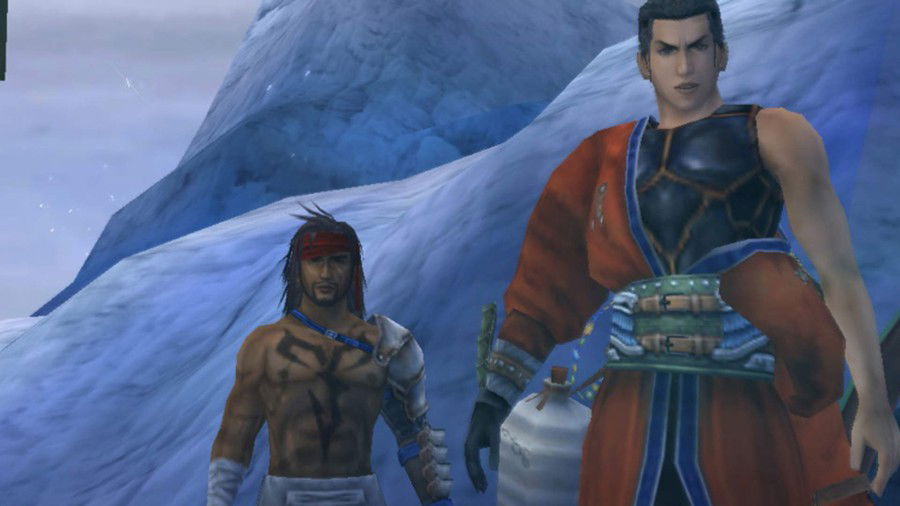
Rikku and Kimahri
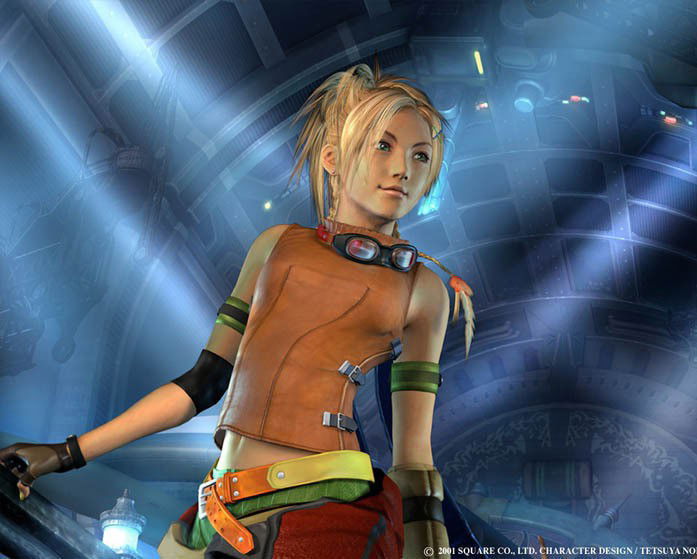
Rikku is part of the Al-Bhed, a marginalized, villainized people who are considered heretics because of their close relationship to the use of Machina, considered wrong by the Teachings of Yevon and by the false morals of the widespread religion.
Besides being Yuna’s cousin (Yuna’s mother was an Al-Bhed) and having, alongside Tidus, the worst reaction out of everyone when she finds out that the Summoner intends to sacrifice herself, not wanting to lose another member of her family, during the gameplay we witness the destruction of the Al-Bhed city, their hometown, in the hands of the Guado - another one of the races in Spira - commanded by Seymour, a Maester of Yevon and leader of his people, and this is a loss which hangs heavy upon her shoulders.
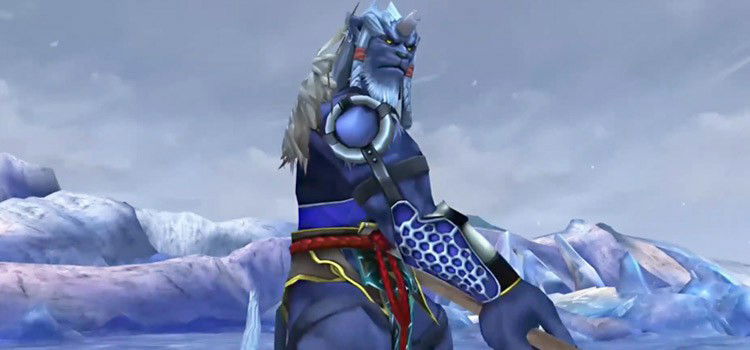
Kimahri goes through similar grief, but due to being exiled from his people instead of having his city destroyed, living as Yuna’s Guardian and being a joke according to his peers until the moment in-game in which we go through Mt. Gagazet and, in a battle to win back his honor, Kimahri is accepted back by his people, the Ronso. Before this point though, it’s heavily mentioned how much this exile and the loss of everything that connected him to his origins was a source of grief and hurt to the Ronso.
Seymour
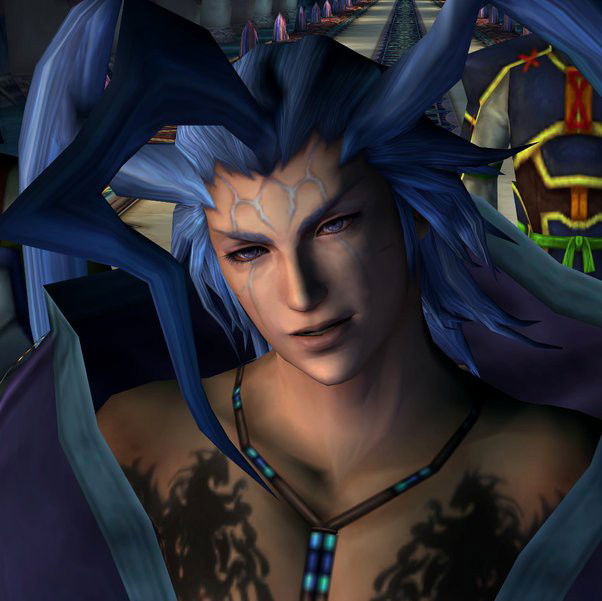
Seymour is one of the main villains in the game, and also strongly spurred on by the loss he has lived with. Son of a male Guado and a female human, his existence was intended to unite both races but ended up having the opposite effect, and Seymour was rejected by both, growing up in exile with his mother until around 10 years of age. One day, he was taken by his mother to the ruins of Zanarkand, where she intended to sacrifice herself and become a Fayth so that Seymour could use her Aeon, Anima, to defeat Sin and earn everyone’s respect.
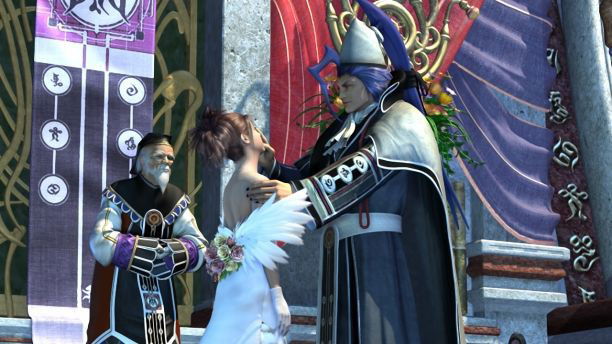
However, Seymour didn’t handle well the loss of his mother and, as the years went by, developed a twisted view on life. Chronologically, just a little while before the beginning of the game, he kills his own father, becomes leader of the Guado and puts his plan into motion. He intends on marrying Yuna and, once she performs the Final Summoning, becoming Sin himself and destroying Spira completely, relieving its inhabitants of their lives since, according to him, suffering is inherent to life and to existing.
Luzzu and Gatta
Luzzu, older and a mentor to Gatta, a young apprentice warrior, are two Crusaders who we meet for the first time in Besaid, and meet again later in Operation Mi’ihen, a task force built on an alliance between Crusaders (the “Army” of the religion of Yevon) and the Al-Bhed to try and stop Sin.
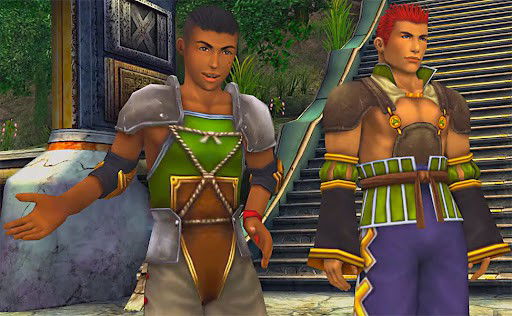
In their interactions with the pair, the player can choose between a few dialogue options which, in the second encounter, will determine which one of the two will, inevitably, meet their end, leaving behind the other feeling devastated by the loss, now forced to deal with the absence of his companion. They are not relevant to the main plot line and only appear in these two instances, but they are great evidence of the care put into the game’s details and another example of the themes being talked about.
The Message in Final Fantasy X
The game brings us this contrast between the different ways to deal with grief, very well exemplified by the two characters who are direct parallels of one another: Yuna and Yunalesca, daughter of Yu Yevon and the first Summoner to give her life and that of her Guardian and husband, Lord Zaon, to defeat Sin for some time.
In addition to sharing a name, both of them have fathers who made sacrifices in the name of something bigger, in their eyes - Braska sacrificing himself for his world and his people and Yu Yevon sacrificing his entire city and population for himself - and both of them know that the pain of loss is unavoidable. However, the way each of them choose to deal with it is diametrically opposed.
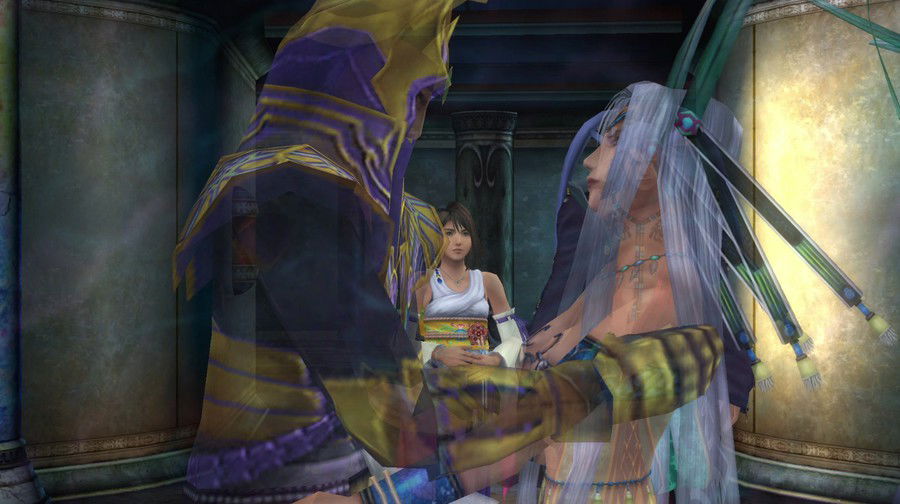
Yunalesca sees grief as something that should be masked to give people hope. She died ages ago, but her soul remains stuck in the mortal plane to keep going the vicious cycle in which Spira is trapped in, knowing very well that Sin will always return and so will the destruction and further loss that he brings, but in her vision the short, brief periods of hope the Summoners and their journeys can bring the people, The Calms, are worth it.
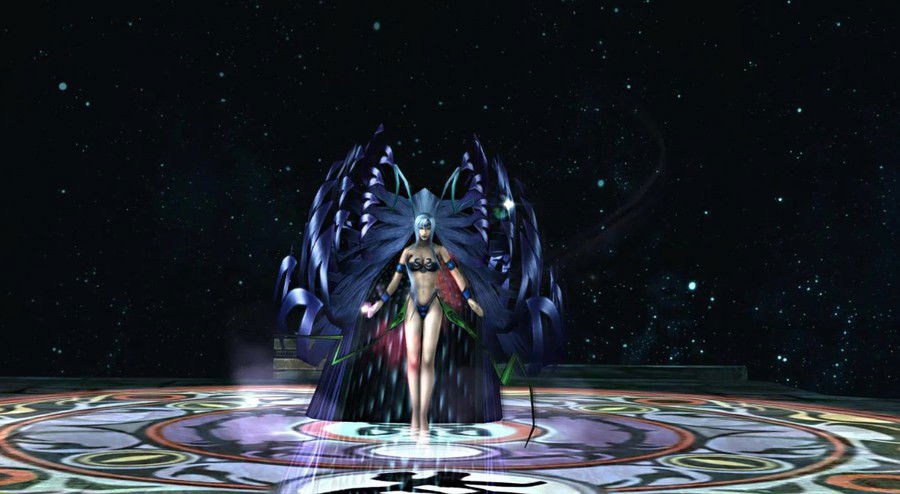
Yuna, on another hand, starts to see this pain as something that, unfortunately, is a part of life as it is and should not be masked by lies, but accepted by each person; Each one having to learn how to live with their own grief. Yuna understands that it’s necessary to learn how to keep living and moving on despite any losses one might suffer because grief and sadness are a natural part of living and there’s no way to simply eradicate them, and giving people hope that there might be one is cruel.
And this is the “lesson” that FFX has for us. As their character arcs progresses, Kimahri manages to win back the respect of his people and returns to them, eventually becoming leader of the Ronso. Rikku and the remaining surviving Al-Bhed understand that, even though they lost their home, they can always build it back up together. Lulu accepts she cannot protect everyone she loves and to not remain bitter due to Chappu’s death, while Wakka realizes that placing all of his faith in religion as a way to “justify” his brother’s passing instead of accepting it and learning how to live with it is wrong.
As a contrast, we have Yu Yevon, who is the personification of one’s obsession in not accepting loss. Instead of accepting that he lost his city, he sacrificed its entire population, and later on the lives of his daughter and son-in-law as well, to maintain the illusion of Zanarkand. The big enemy in the game, Sin, is literally a product of Yu Yevon’s inability to deal with his grief.
The Role Religion Plays in Spira
One of, if not the biggest responsible for perpetuating this cycle of death and destruction is the religion of Yevon itself, preaching two main teachings: The first is that Sin is the product of the sins committed by all of Spira’s citizens, and will vanish completely once everyone has atoned for them, blaming the use of Machina and any idea that goes against the Maesters for such sins and, in a way, placing the entire weight of the destruction and devastation brought by Sin on top of its very own victims.
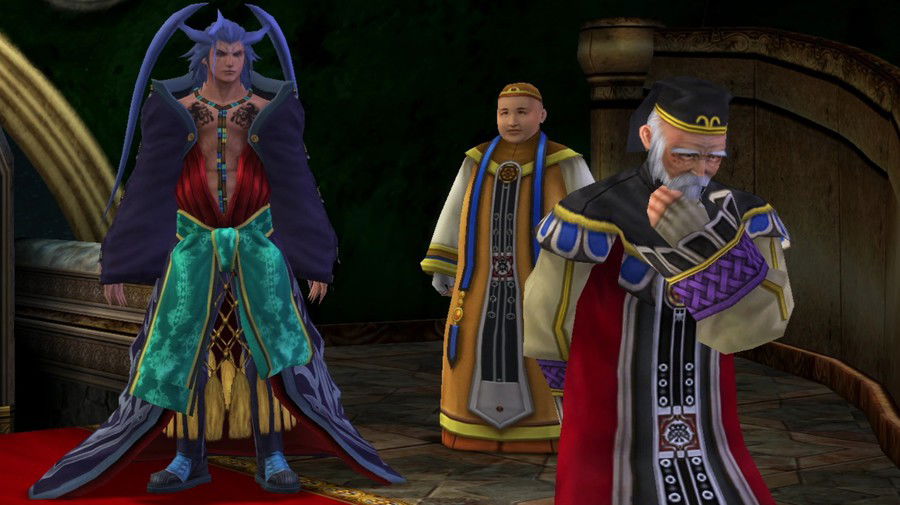
The second one is that one day the Final Summoning might, in fact, defeat Sin for good, despite every leader and Maester knowing the truth about Sin’s nature and knowing that this is impossible to achieve. Sharing in a vision similar to Yunalesca’s, they keep an entire society cruelly trapped in a vicious, deathly cycle under false premises, and continue sending Summoners, Guardians and Crusaders to their deaths in vain, only to keep up appearances and power.
Conclusion - Breaking the Cycle
By the end of the game, the cycle of death and suffering in which Spira was trapped gets broken, and its people freed from the threat of Sin and the oppression of the religion of Yevon, each individual now responsible for facing their own losses and for learning how to live with them and continue moving on, following the cycle of life without getting attached to false hopes.
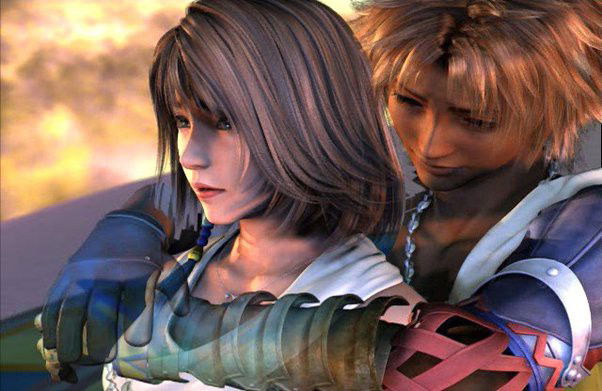
The final sequence in the game is truly to cry for, amidst the happiness felt by everyone in the face of their victory in the fight against Sin, Auron and Tidus have to finally face the end of their existences, Auron accepting his death and allowing himself to go to the Farplane as Yuna performs the Sending, and Tidus just ceasing to exist alongside the entirety of the dream version of Zanarkand, as Yu Yevon is defeated and the Fayth can finally rest, stopping their forced dream.
It’s a bittersweet ending, which brings yet more grief: To Tidus, the loss of his existence, and to Yuna, the loss of a dear friend and the one she fell in love with, new wounds which she must learn to live with.
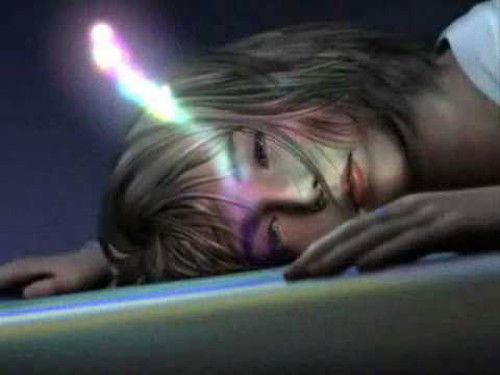
Playing Final Fantasy X for the first time back when I was 13 years old, not having experienced any great losses in life, and playing it again now, at 27, after being put through grief situations, especially a very recent and difficult one, were two entirely different experiences.
The last words from Tidus to the Fayth, "I’m grateful", are the message we take from this game.
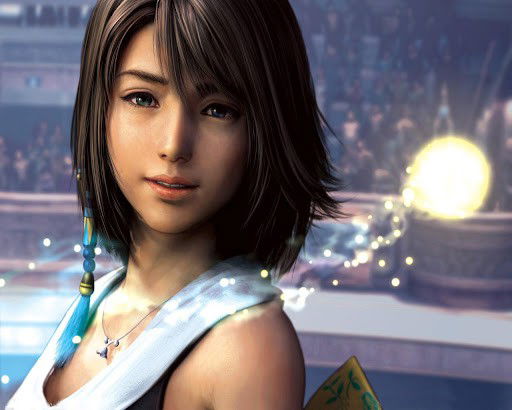
The only certainty we have in life is the inevitability of death, and, instead of keeping ourselves clinging to the past, forever lamenting something unavoidable, FFX tries to show us that we can instead feel grateful, for having had the opportunity of living alongside those we love, and for being able to keep them “alive” in our memory and inside our heart.
Thank you for reading!








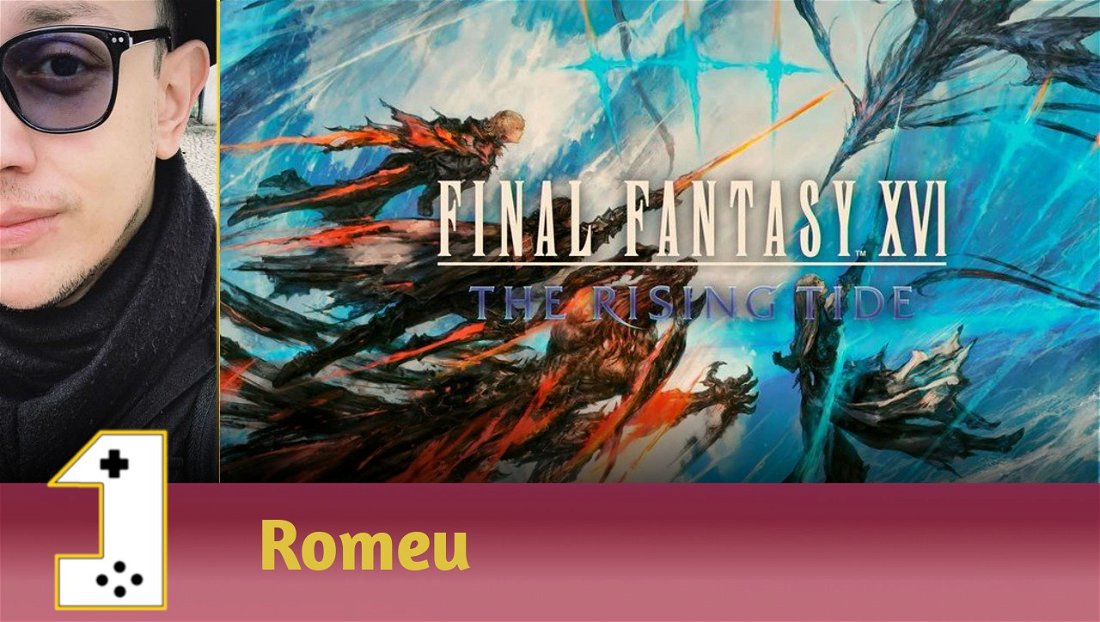
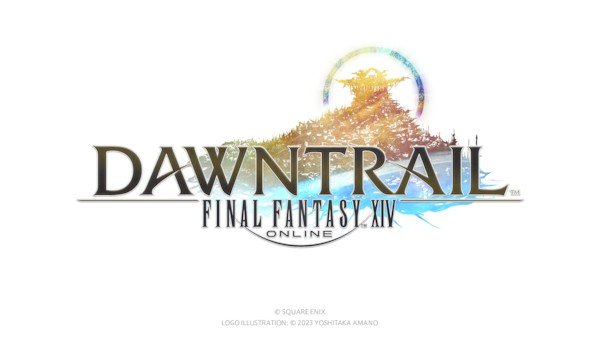



— Commenti 0
, Reazioni 1
Diventa il primo a commentare